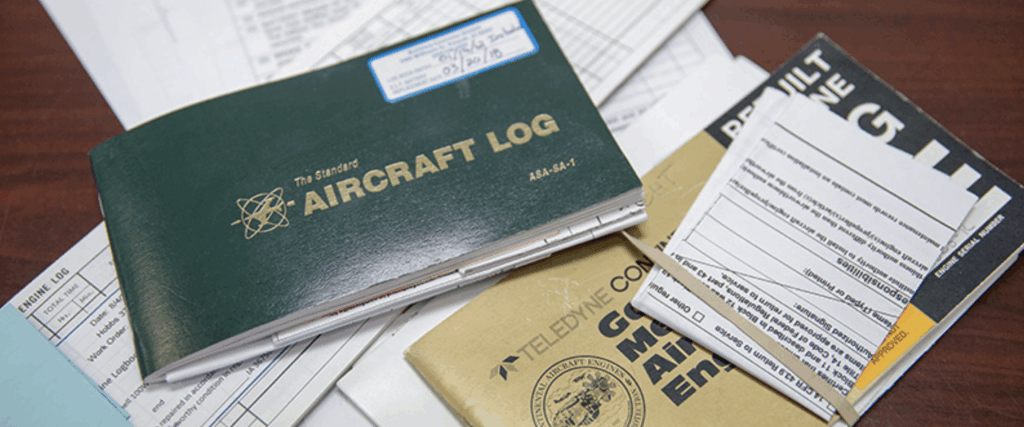
Embarking on the journey to acquire a pre-owned business aircraft is an exhilarating but complex process. After you’ve identified a strong candidate and agreed on a purchase price, the most critical phase begins: the pre-purchase inspection (PPI). This in-depth look at the aircraft and its records is your best defense against buying an aircraft with hidden issues that could cost millions to fix.
To ensure your investment is sound, you and your trusted and experienced IADA certified aircraft broker must know what questions to ask the independent maintenance facility performing the inspection. The right answers provide peace of mind and protect your financial interests.
Has the Aircraft Ever Sustained Damage, and Was It Properly Repaired?
Damage history is not always a deal-breaker, but its severity and the quality of repairs can significantly impact an aircraft’s value and future maintenance costs.
- What to ask: Ask for a full damage history report, and request to see documentation of any major repairs.
- What to look for: A thorough review should confirm that all repairs were performed in accordance with the manufacturer’s engineering standards and by a qualified facility. Be wary of missing or incomplete records, as this can be a red flag.
Is the Aircraft in Full Compliance With All Airworthiness Directives (ADs)?
ADs are mandatory regulations issued by the FAA to correct unsafe conditions in an aircraft. Non-compliance is illegal and can immediately ground an aircraft.
- What to ask: Request a detailed report confirming that all applicable Ads for the airframe, engines, and major components are current and have been properly addressed.
- What to look for: Your inspection should verify that the logbooks include entries for each AD, specifying the method of compliance and signed off by an authorized mechanic.
What Is the Status of the Aircraft’s Service Bulletins (SBs)?
Unlike mandatory ADs, Service Bulletins are manufacturer-issued recommendations for maintenance, modifications, or inspections. While not all SBs are required, they often address common issues and can significantly impact the aircraft’s resale value and operational reliability. You need to address at least mandatory service bulletins.
- What to ask: Request a status report on all manufacturer SBs.
- What to look for: Identify any critical SBs, especially mandatory service bulletins, that the manufacturer deems important for safety or performance. Skipping these could lead to unexpected costs later, so negotiate their completion into the purchase agreement.
What Is the Condition and Completeness of the Maintenance Logbooks?
The logbooks are the aircraft’s life story, chronicling every repair, inspection, and flight hour. Incomplete or poorly organized logs are a major red flag.
- What to ask: Have the inspector conduct a complete audit of the logbooks, looking for any gaps in time, missing entries, or unverified repairs.
- What to look for: The logbooks should be meticulously organized, with all major component changes, life-limited part traceability, and AD / SB compliance clearly documented. A messy logbook can indicate poor ownership and maintenance practices.
What Is the True Health of the Engines?
Engines are the most valuable components of a business jet, and their health is a primary concern. If the aircraft is on an engine program then typically engine runs, test flight and a visual FOD check are sufficient to verify the health of the engine without risking voiding the engine program coverage. If the aircraft is not on an engine program than an engine borescope inspection may be appropriate.
- What to ask: Inquire about the full engine report, FOD checks, borescope findings (if appropriate and not on an engine program), and operational performance.
- What to look for: During the engine runs and test flight look for abnormalities in engine performance. If a borescope is appropriate, the inspector looks for signs of corrosion, cracks, or foreign object damage (FOD) that aren’t visible externally. This is particularly important for aircraft with engines not enrolled in a maintenance program, where costly overhauls can be a major financial hit.
Partner With the Experts
A thorough pre-purchase inspection is a complex process best managed by professionals. A trusted and experienced IADA certified aircraft broker can guide you through each step, helping you select a qualified facility for the aircraft inspection services and interpreting the results to ensure a confident and informed purchase. At Holstein Aviation, our IADA certified professionals bring decades of transaction experience, real-time market intelligence and global reach. We guide our clients through every step of the process, ensuring confidence and clarity in today’s dynamic environment. If you are buying an aircraft or selling your aircraft, Holstein Aviation is your trusted partner in business aviation.